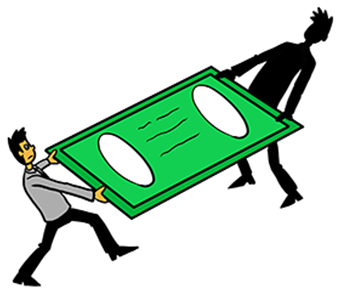Next up in our series on lenders and interest rates, let’s take a look at collateral and how collateral will affect the rate.
At the risk of being a bit basic, let’s understand what collateral is – it’s something of value that a borrower puts up to “secure” a loan. And if the borrower defaults, the lender can take and sell the collateral to help satisfy what is owed.
So a loan with collateral is a “secured” loan, and one without collateral is considered “unsecured.” For example, most credit card lending is “unsecured”.
In many types of lending, the collateral is usually the item the loan is being used for. This is especially true in consumer lending. A car loan or a mortgage is typically secured by the car or home itself, and the lender will “repossess” them if the loan is defaulted on.
Now, the better and more valuable the collateral, the better the loan terms and rate may be. This is partially why a new, high-end luxury car may have a lower rate than a used car and why a home/land will typically have a lower rate than most auto loans – the collateral is simply more valuable.
In terms of equipment financing, there are two common collateral types: the equipment itself and what’s called a blanket lien. Let’s look at both:
- The Equipment Itself: Some lenders, Crest Capital amongst them, only require the financed equipment itself as collateral. This means if the loan is defaulted on, the lender can take possession of the equipment. The equipment will have a lien on it, which legally prevents the borrower from selling the equipment. Once the loan is satisfied, the lien is lifted.
In general terms, “equipment-only” collateral loans are offered to profitable companies with good credit. This is because, in most cases, the equipment is usually worth less than the loan balance and carries repossession costs. So, the rate offered, while strong and competitive, will likely not be the absolute lowest.
- Blanket Liens: Blanket liens are when a lender puts a lien on an entire company, covering all assets. This is extremely secure for the lender, as a defaulting borrower can be liquidated until the entire is satisfied. But it’s a large drawback for the borrower, as every asset the company owns now has a lien on it. This greatly reduces financial flexibility – a company with a blanket lien cannot sell or even give away any asset without lender permission. Blanket liens are used by almost all banks, which is why banks often carry the lowest equipment financing rate.
Tradeoff Alert: Accepting an equipment financing loan with a blanket lien may result in the lowest rate by a point or two but will severely restrict a company’s financial flexibility and operations. If you are unsure about the ramifications of such a situation, ask your accountant.
Collateral is a necessary part of lending – in short, most loans would not exist without some form of collateral. However, the types and amount of collateral can vary greatly and can definitely affect the rate you pay.

